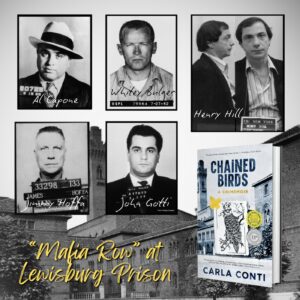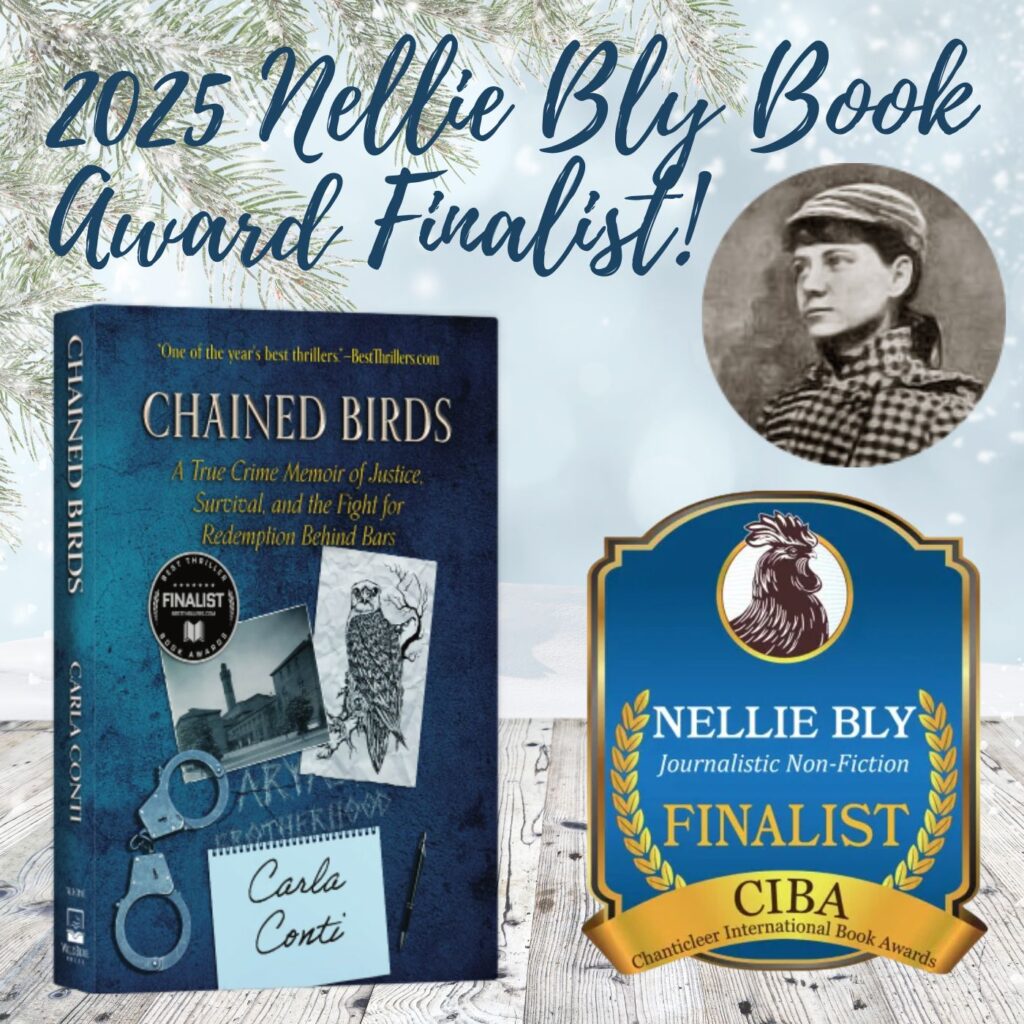
I am ecstatic to report that Chained Birds has been short-listed for CIBA’s 2024 Nellie Bly Book Awards! So naturally, I’ve done a deep dive into all things Nellie Bly … get ready for a primer. 😁
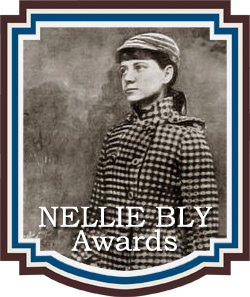 Sponsored by the Chanticleer International Book Awards and Novel Competitions (CIBAs), this award recognizes emerging new talent and outstanding works in the genre of Journalistic Non-Fiction. First-place category winners and division grand prize winners will be announced at the Chanticleer Authors Conference in April in Bellingham, WA.
Sponsored by the Chanticleer International Book Awards and Novel Competitions (CIBAs), this award recognizes emerging new talent and outstanding works in the genre of Journalistic Non-Fiction. First-place category winners and division grand prize winners will be announced at the Chanticleer Authors Conference in April in Bellingham, WA.
I am so very honored that Chained Birds is among 11 Nellie Bly finalists, including NBC Dateline producer Dan Slepian’s THE SING SING FILES: One Journalist, Six Innocent Men, and a Twenty-Year Fight for Justice. Boy, did my reading list grow this week. 🤓
Who was Nellie Bly?
Many folks know her as the journalist who got herself committed to a women’s insane asylum in the late 1800s to report on its deplorable conditions. This achievement ushered in her notoriety and was only the start of a storied life of ambition, social awareness, philanthropy, and worldwide reporting, including as a WW I correspondent.
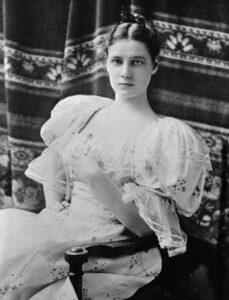
Born as Elizabeth Cochran in 1864 in Pennsylvania, her journalism career started with a Pittsburgh Dispatch column titled “What Girls Are Good For,” which stated they were principally for birthing children and keeping house. Elizabeth, 20 at the time, was so outraged after reading it that she wrote her own scathing reply and mailed it to the newspaper. (Of note: Her mother’s place in the home had not turned out well. She and her five children had been left penniless upon her first husband’s death when Elizabeth was six. Her mother then remarried an abusive drunkard, divorced him, and was forced to run a boarding house to keep the family afloat.)
Elizabeth’s snarky reply, which she signed as “Lonely Orphan Girl,” impressed the Dispatch’s editor, George Madden, and he gave her a job. He gave her a pen name, too, because, at the time, women journalists didn’t write under their own legal names to keep their personal lives private and allow their work to be taken more seriously (seriously?). Madden picked for her (and misspelled) the pseudonym “Nelly Bly” after the 1850 song written by Pittsburgh songwriter Stephen Foster. Elizabeth Cochran went on to use the pen name Nellie Bly in her personal and professional life for nearly 40 years.
My takeaway thus far: This spunky, intellectual writer, who had to make her way in a man’s world, didn’t even get to pick her own misspelled pen name.
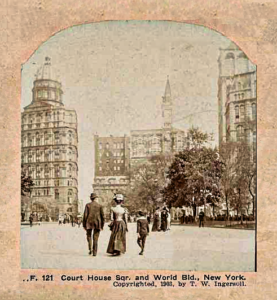
Bly was relegated to the Dispatch’s society pages for stories about fashion and gossip. She was eventually, occasionally, allowed to write about more substantial women’s interests, like divorce reform and the plight of working women earning a pittance or in unhealthy jobs. But those assignments were few, and after three years, she became bored, so she headed to New York City.
Bly faced rejection from numerous editors, many admitting biases toward female reporters. Undeterred, she set her sights on publishing magnate Joseph Pulitzer’s New York World. She finagled a meeting with the managing editor, Colonel John Cockerill, and presented a list of story ideas she would pursue. But Cockerill had a dangerous counter-proposal: pretend to be insane and check herself into the women’s lunatic asylum on Blackwell’s Island to report on the conditions inside. The asylum was rumored to be abusing its patients.
There was no debate. It was a take-it-or-leave-it offer, and Bly accepted. She was 23.
![New York World managing editor Colonel John Cockerill proposed Nellie Bly go undercover as a patient at Blackwell's Island Lunatic Asylum for Women to report on abuses there. [Royalty-free public domain image]](https://carlajeanconti.com/wp-content/uploads/2025/01/new-york-city-asylum-for-the-insane-woman-blackwells-island-1024x538.jpeg)
My next takeaway: What kind of twisted yellow-rag overlord sends a 23-year-old newcomer into the gates of asylum hell for her first assignment?
Ten Days In a Mad-House
Bly spent ten days as an undercover patient, experiencing many of the horrific conditions she unveiled under her byline in the World: ice cold baths, forced starvation, spoiled food, unsanitary practices, beatings by nurses, morphine drugging, and the constant threat of sexual assault. She saw perfectly healthy women committed against their will, with no one in charge to believe them.
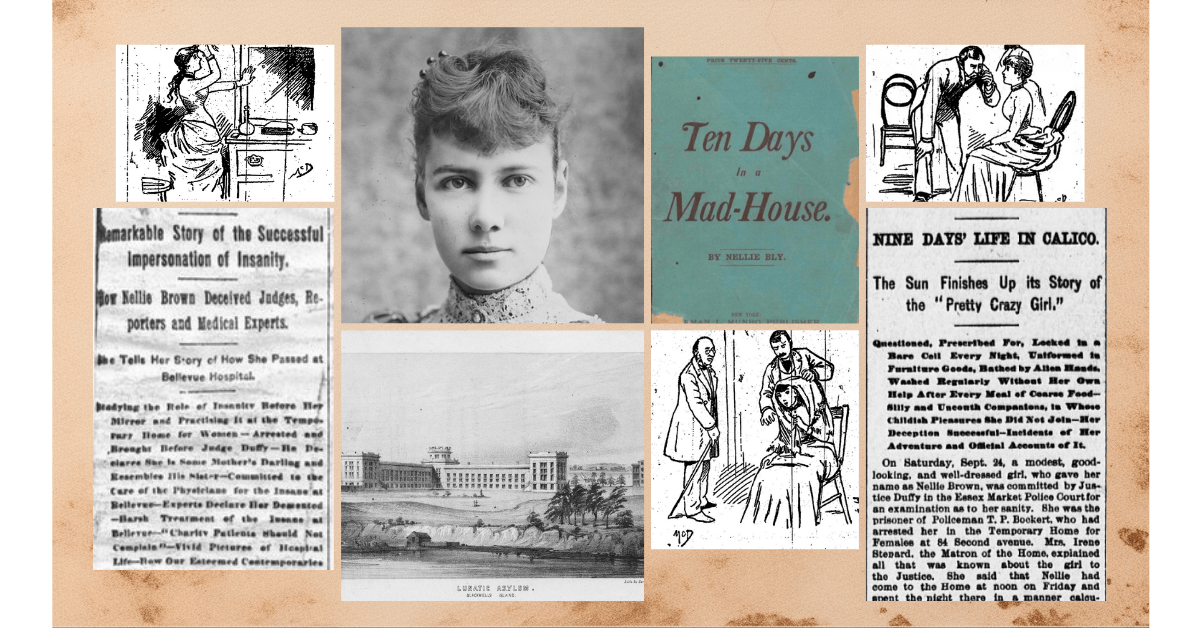
Bly’s exposé, “Ten Days in a Mad-House,” was picked up by other newspapers across the country and made her a household name. Her reporting also led to an additional $1 M in appropriations for improvements in New York City’s asylums — this is the spirit in which CIBA’s Nellie Bly Book Awards are given.
Since 2011, Chanticleer Reviews has offered book reviews and writing competitions to help readers discover the best books. With over two million titles a year vying for the public’s attention, Chanticleer Book Reviews was founded to help notable authors gain visibility in today’s highly competitive publishing market.
I’m grateful to Chanticleer Book Review for helping put Chained Birds on the reading public’s map!
Read more about Nellie Bly
Two years after her women’s asylum exposé, Bly set out to see if she could beat the fictional Phileas Fogg’s travel time in Jules Verne’s Around the World in Eighty Days. She made it in 72 days and six hours and returned to New York Harbor with great fanfare. The celebrity journalist went on to marry a millionaire and become a WW I war correspondent in Austria.
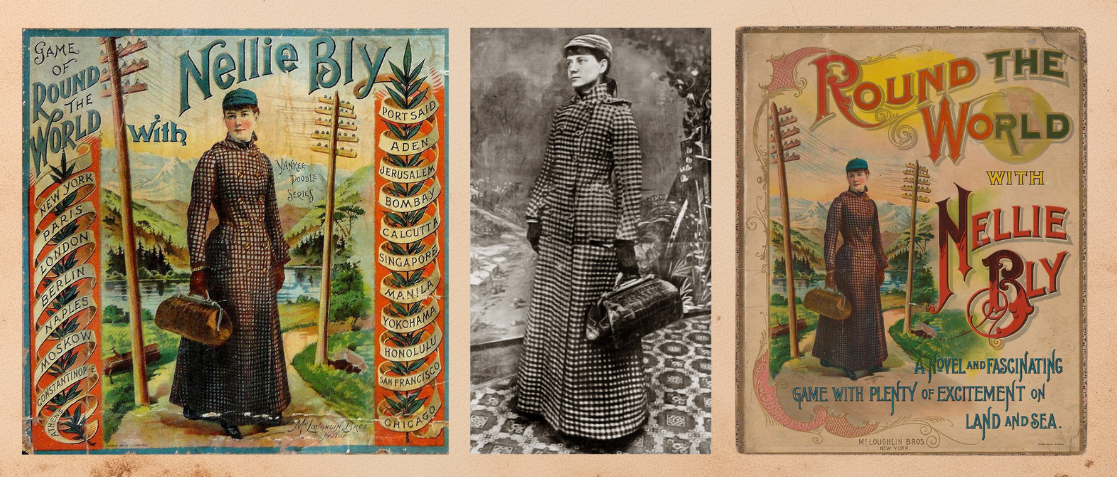
A fuller biography and list of accomplishments are too great for this blog space, but you can read more about Nellie Bly from these sources:
- Mitchell, T. (2020, May 8). “Who was Nellie Bly?” (Part 1 of 3). Tonya Mitchell. https://www.tonyamitchellauthor.com/post/who-was-nellie-bly-part-1-of-3
- University of Pennsylvania Digital Library. (n.d.) “Ten Days in a Mad-House.” https://digital.library.upenn.edu/women/bly/madhouse/madhouse.html
- Popova, M. (2018, May 4). “Ten Days at the Mad-House: How Nellie Bly posed as insane in 1887 in her brave exposé of asylum abuse.” The Marginalian. https://www.themarginalian.org/index.php/2014/05/05/ten-days-at-the-mad-house-nellie-bly/
- Mahoney, E. (2018, January 24). “Nellie Bly: A Race Against Time.” Heinz History Center. https://www.heinzhistorycenter.org/blog/western-pennsylvania-history-nellie-bly-a-race-against-time/
- The New York Historical. (2021, August 3) “Nellie Bly’s ‘Ten Days in a Mad-house’ and the Rise of Girl Stunt Reporting.” https://www.nyhistory.org/blogs/nellie-blys-ten-days-in-a-mad-house-and-the-rise-of-girl-stunt-reporting
- Brown, R. (2020, November) “Elizabeth Jane Cochrane (Nellie Bly).” Apollo Area Historical Society https://apollopahistory.com/apollo-history/people-families/elizabeth-jane-cochrane-nellie-bly/
- Kroeger, B. (1996, April 1). “Prologue/National Archives: ‘Nellie Bly: She Did it all'” Brooke Kroeger. https://brookekroeger.com/nellie-bly-she-did-it-all/
Carla Conti is a journalist and the award-winning author of Chained Birds: A Crimemoir. Her next true crime book, The Jacklighter, is set for release in 2026. She lives in Pennsylvania with her husband, who supports her true crime habit.




